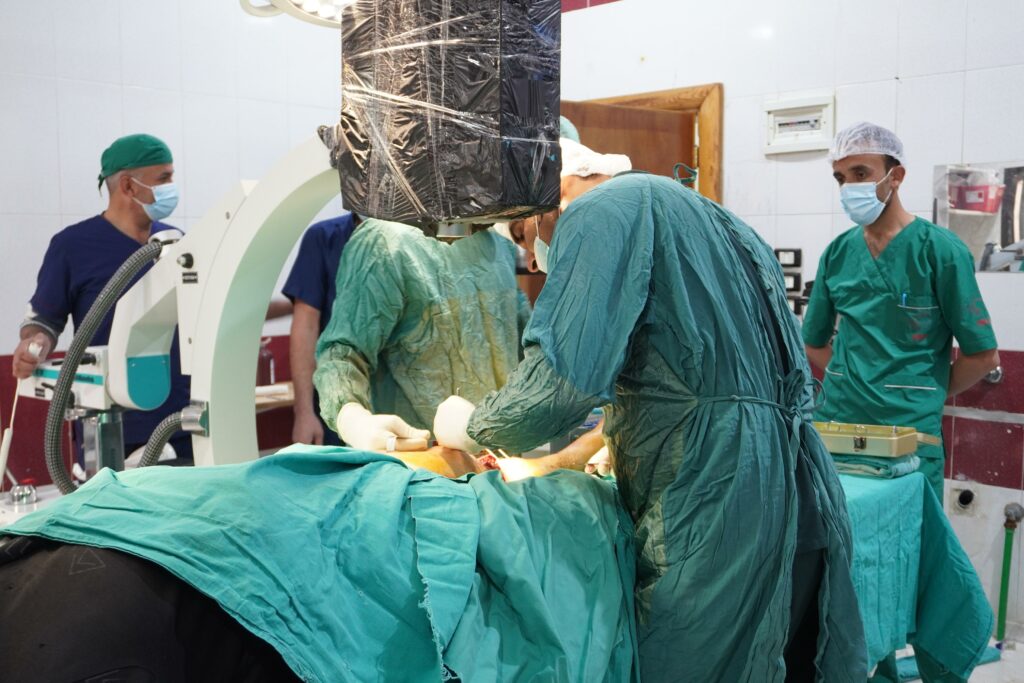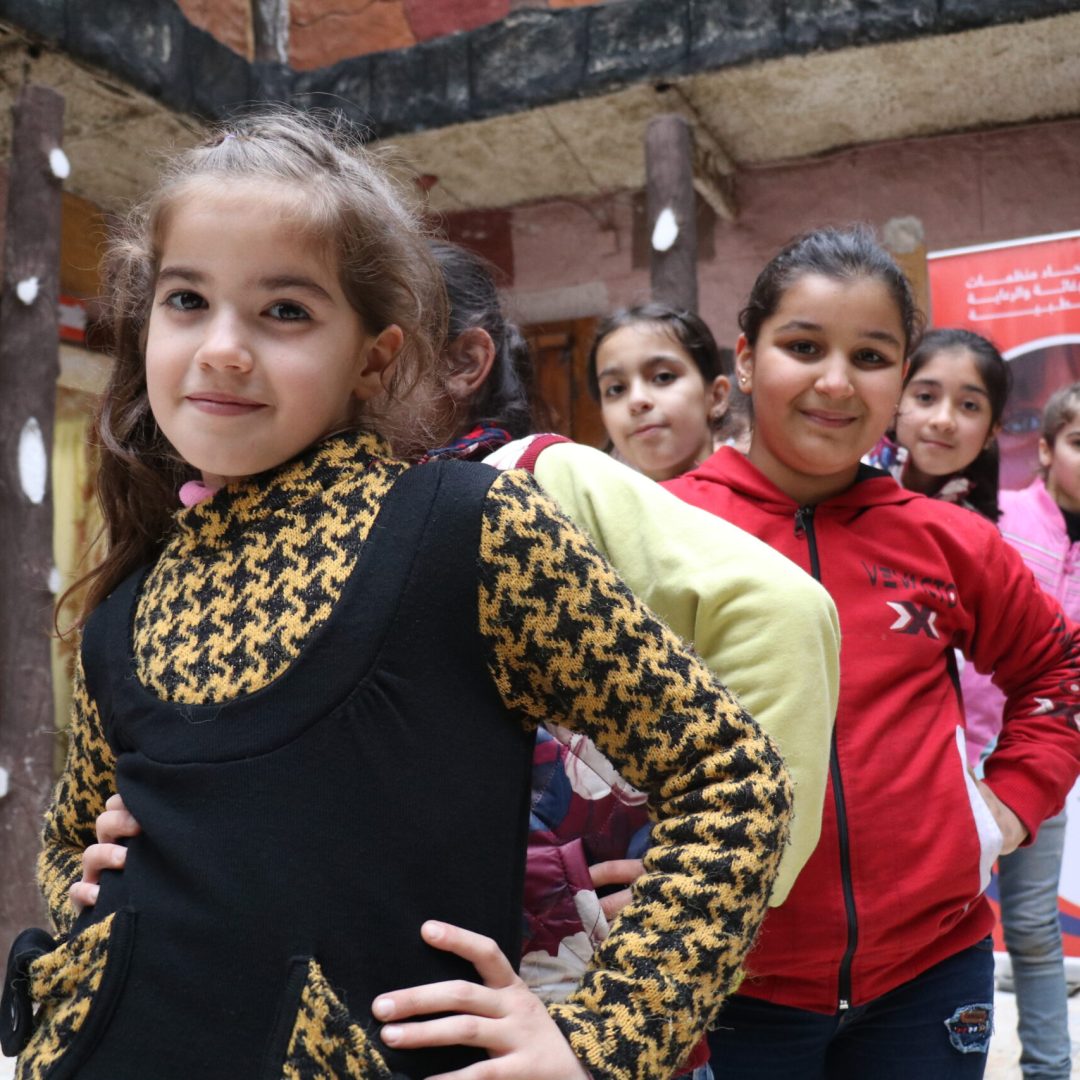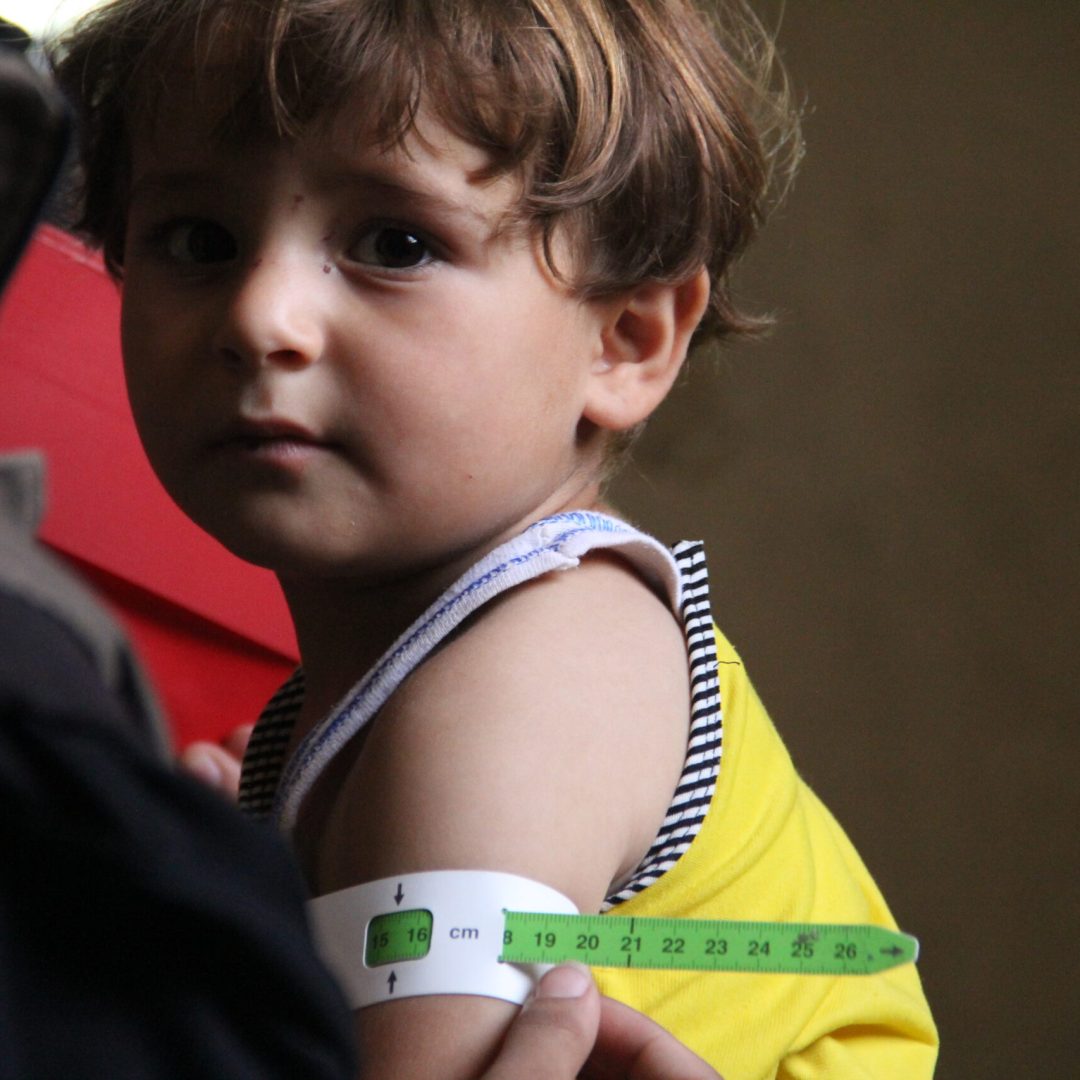UOSSM International
Geneva, December 7, 2024
The humanitarian conditions in northern Syria continues to worsen as military operations escalate. Impact on civilians and essential services are remarkable. The situation in Aleppo and Hama is particularly critical due to shortages of medical staff, supplies, and trauma kits. Healthcare facilities are overwhelmed, leaving many patients and injuries without the necessary, lifesaving, care. Since late November, the military escalation and the airstrikes particularly have caused displacement to tens of thousands of people, reports indicate than more than 280,000 people are now displaced. Additionally caused significant destruction to infrastructure. Number of casualties increased to at least 370 people reported by noon, December 6, 2024.

Since the escalation began, UOSSM has been actively responding to the urgent needs of affected communities. Over 1000 trauma cases have been managed including 141 major lifesaving surgeries across UOSSM’s hospitals. Despite the uncertain conditions, our ambulances have managed to transport nearly 600 people giving each one another opportunity to life. Our mobile medical teams and units have moreover provided more than 1,700 services in shelters and emergency reception centers. Finally, due to the attack on Ibn Sina Centre for dialysis on December 2, we have transferred 10 dialysis devices and all necessary equipment to Al-Salam Hospital to resume vital services.
On December 5 and 6, UOSSM has deployed four ambulances to Hama, transporting dozens of critically injured people to Hospitals. As the region face a severe shortage of specialized doctors, UOSSM is mobilizing orthopedic and general surgery specialists to support overwhelmed facilities in Hama, while also delivering trauma kits and life-saving medicines wherever possible.
“The situation is dire, with many patients unable to receive the urgent surgeries they urgently need due to a shortage of specialized doctors. We are working tirelessly to provide the support needed, but more resources are immediately required. The lives of many depend on our ability to continue this critical response.” said Dr. Badreldin Bahro, vice President of UOSSM during his current mission in Syria.
UOSSM aims at expanding and increase its ambulance system to ensure the rapid transfer of injuries, medical teams and critical supplies to areas most in need. Additional mobile clinics will serve reaching displaced and injured people across the vast and shifting geography. With the necessary support, hospitals in Aleppo and Hama will be equipped with the essential resources required to manage the growing crisis and deliver life-saving care to those who need it most. Yet, this could happen only with your support.
Dr. Ahmad Al-Debis, Operations’ director and Disaster manager at UOSSM said “the number of injured civilians from northern rural Homs and Hama city is significantly high, mainly due to aerial bombardments targeting towns and villages. This has placed immense pressure on hospitals in Hama city and southern rural Idlib”
The need is immense, and your help can make a life-saving difference. Contributing now allows us to secure trauma kits, medicines, and ambulances. Together, we can ensure lifesaving care that reaches the most vulnerable in Aleppo, Hama, and beyond.
Sign up to receive frequent email updates on our projects and initiatives. Stay informed and connected with our work, making a difference with each update. Join us now!







